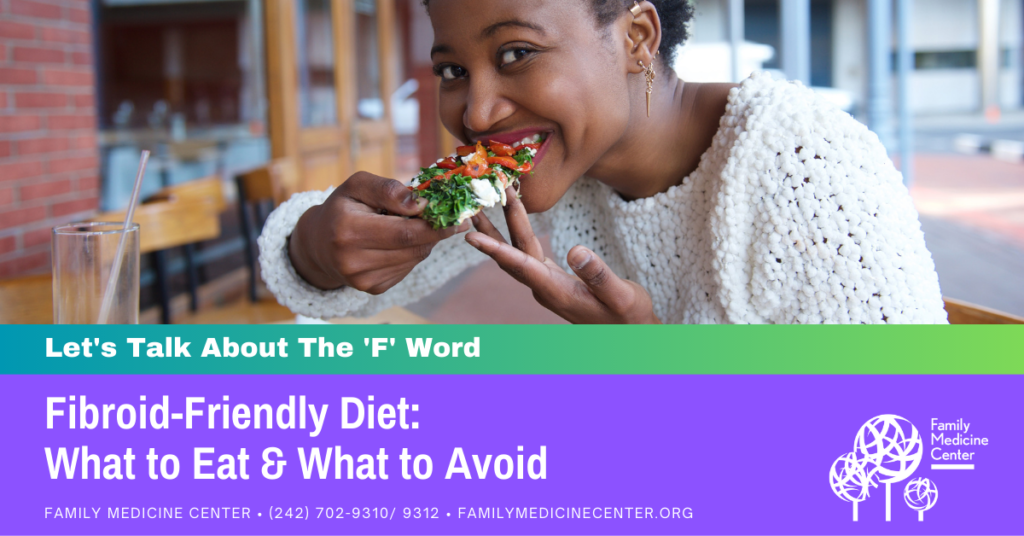While there is no specific “fibroid-friendly” diet that guarantees the prevention or elimination of fibroids, certain dietary choices may help manage symptoms and promote overall reproductive health. Here are some recommendations:
Eat a balanced diet: Focus on a diet rich in fruits, vegetables, whole grains, and lean proteins. Include a variety of nutrients to support overall well-being.
Fiber-rich foods: Consuming foods high in fiber, such as legumes, whole grains, and fruits, may help regulate hormonal balance and reduce the risk of fibroids.
Antioxidant-rich foods: Antioxidants help fight inflammation. Include foods like berries, leafy greens, nuts, and seeds that are high in antioxidants.
Iron-rich foods: If you experience heavy menstrual bleeding due to fibroids, consuming iron-rich foods like spinach, beans, lean meats, and fortified cereals can help prevent anemia.
Limit caffeine and alcohol: These substances may exacerbate symptoms like pelvic pain or discomfort, so it’s advisable to limit their consumption.
Healthy fats: Incorporate sources of healthy fats, such as avocados, olive oil, and fatty fish, as they may have anti-inflammatory effects.
Reduce processed foods: Minimize the intake of processed foods, sugary snacks, and beverages, as they can contribute to inflammation and hormonal imbalances.
Remember, these dietary recommendations are generally beneficial for overall health and well-being. However, it’s important to consult with a healthcare professional or a registered dietitian who can provide personalized guidance based on your specific needs and medical history.
Are you living with uterine fibroids? Talk to us about a non-surgical procedure – uterine fibroid embolization. Call (242) 702-9310 or click here.

